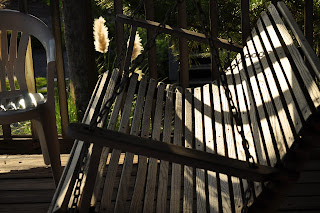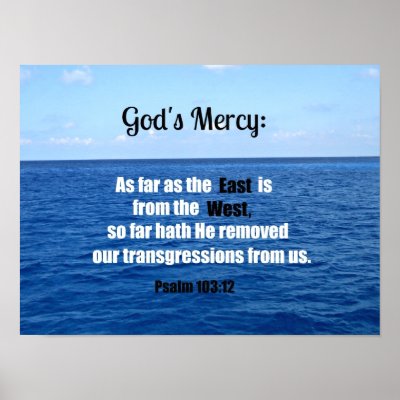Back in the
early 90’s I was rector of a parish in the DC metropolitan area. I had gotten to know a conservative rabbi
through our interfaith alliance there.
We had talked about the festivities of the Passover and its relationship
to the Christian Eucharist. (That is
what our readings for tonight are about.)
The rabbi invited me to celebrate the ‘second Passover’ at his home with
his family. He and his wife came from
different Jewish traditions: He was
Sephardim—a Jewish lineage from Spain and Yemen and she was Ashkenazy, a Jewish
lineage from the Middle European communities.
So in their family ‘first Passover’ was celebrated in the style of the Ashkenazim
and the second day of the feast was celebrated in the fashion of the Sephardim.
The welcome to
that celebration was incredible. Rabbi
Chaim welcomed us with such warmth. My mother was visiting with me at the time
and she was welcomed as a long lost friend. Also attending were several men from Latin
America who were away from their homes on the feast. The conversation was
centered on the questions of the youngest child: Why is this night different from all other
nights?” Not only was it a time to get
together, and a time to instruct the children in the story of the faith, but it
was also a time of remembering how God had acted in our lives. It was clear
that the feast was being celebrated as directed by the Law of Moses, but
conversations around the table celebrated how each family represented had been
saved by God. The men from Latin America
related how their families had escaped the Inquisition in Spain in the 16th
century. The wife described how her
family had escaped the pogroms of Russia and Nazi Germany. The rabbi described how his family had
survived famine in Yemen. The Passover
was not just a tired piece of history that they were reliving. It was vibrant, immediate and explained how
they had survived by the grace of God.
It was salvation history at its most intimate.
That was
what Jesus was doing at the last Supper---celebrating Passover with his
disciples. His disciples were from every different part of Judaism. There were Peter, James and John from the
Galilee, there were Greek Jews like Bartholomew and Philip and there was
Matthew or Levi who was both a traditional Jerusalem Jew but also a tax
collector. They represented those who
followed the God of Israel from various different ethnic backgrounds. They
gathered as friends to celebrate the great feast of Passover in Jerusalem and to
reiterate their salvation history. Even
in Jesus’ day the Jewish adage—‘next year in Jerusalem’ prevailed. It was the pinnacle of a Jew’s life to celebrate
Passover in Jerusalem in the shadow of the Temple and among other Jews who had
been forced into the Diaspora. All Jews
wanted to celebrate Passover in Jerusalem.
Jesus was no different.
There is
something so profound about gathering for a meal in the name of God.
Feasting is a part of the glue that holds
communities together. When we break
bread with one another it is a sign of solidarity; it is a sign of peace. There are many passings of the cup of wine at
Passover. And it isn’t a matter of a
quick sip either. Passover is meant to be
lively—not just a matter of remembering that night in Egypt. The Passover that Jesus wanted to share with
his disciples was not a matter of having dinner at the boss’ club, or minding
one’s p’s and q’s at the professor’s house.
It was truly a gathering of peers to celebrate God’s presence among
them. And that was what Jesus was
inviting his disciples to.
In Matthew,
Mark and Luke as well as in today’s reading from First Corinthians, we hear
Jesus instituting the Eucharist adding another layer to the remembrance of
salvation at the Reed Sea. “Do this in
remembrance of me,” Jesus says. However,
in
the Gospel of John which we hear in tonight’s Gospel, we find Jesus acting
out the love which the Passover was supposed to engender. During the meal---not before when it would
have been customary to wash feet—Jesus begins to wash the feet of his
disciples. This was a common act of a
slave in Mediterranean societies. Like
so many of us—we don’t want people who are peers to do such menial tasks. But Jesus makes it very clear that if humans
are so geared to class barriers, we cannot be one with one another. We cannot
understand what the breaking of the bread means.
I was serving
a parish in California. I had gone there to start a Spanish-speaking mission and had
doubled the size of the parish in about 18 months. One day the men of the English-speaking
portion of the parish met to do some yard work on Sunday afternoon.
It was hot, dirty, hard work. The
matriarch of the parish came by and supposedly jokingly hollered at them: “Hey, why are you doing all that? Isn’t that what we have Mexicans for?” It was obvious that she hadn’t understood the
Eucharist that we had just celebrated. I
didn’t stay long in that parish.
How many
times have you not allowed someone else do some act of kindness because you
can’t stand to be ‘beholden’ to them?
How many times do we fight over who pays the check when we have had a
meal out with another? Being ‘beholden’
is part of the
glue that holds Christian society together. We cannot play one-up and be a
Christian. That is what Jesus is
teaching in the Foot-Washing. Eating and
serving are part and parcel with one another.
Eucharist
and Foot Washing cannot be separated. If
we come to the altar to receive Christ in the Body and Blood, we also have to
accept the service of washing our feet.
In order to know the grace of the sacrament, we must also know the
humility of receiving the grace.
Part of the
reason that Jesus got into so much trouble is that he sets the comfortable
pigeon-holes we erect for ourselves on their ear. All
the class lines, all the ways we would control people are nothing in Jesus’
theology. Love requires equality. Love requires service. Love requires a way of seeing the world that
turned the whole of society upside down---or as one of my colleagues was fond
of saying. Jesus demanded that life be
seen ‘right side up.’
Tonight Jim
will wash feet. I will not simply
because I can’t get down on my knees to do it any more. But I will wash feet in my heart. I hope you will wash the feet of those you
might feel a bit superior to, those who you might supervise, those who you
might be angry with, those from whom you are estranged in your hearts.
I hope when you receive the Body of Christ
you will try to remember the ways that God has acted in your life—or the ways
that your family has been saved over the centuries by God’s redeeming love. I hope when you feel the water on your feet
that you remember the meals that have glued you together with Christians
everywhere.
What we do
here tonight is what reminds us of the incredible love of God ---that love that
God has for us and all Creation—the kind of love that Christ mandated 2 thousand
years ago that we love one another. The
word ‘Maundy’ comes from the word for commandment. Tonight is the night that
reminds us of that Law of Love Christ gave and acted upon. He acted upon that love not merely by washing
the feet of his disciples. He acted upon
it by emptying himself and giving himself up to a death on a cross. The love that he showed is the kind of love
that we are called to---a self-less love.
It is the kind of love that says that there are no barriers between us,
no class-levels, no reasons to claim one is Christian over another. For he said to us:
“For I have set you an example, that
you also should do as I have done to you. Very truly, I tell you, servants are
not greater than their master, nor are messengers greater than the one who sent
them. If you know these things, you are blessed if you do them.”

